A few weeks ago I was finally able to post about losing my first dog, Kitsune. Our beloved Kitsune passed away peacefully on January 31st. We had just celebrated his 15th birthday a little over a month earlier. As any dog lover can imagine, the loss of such a special member of our pack has really hit hard. We got our second dog, Fenrir, when Kitsune was 8 years old. Fen was raised with Kitsune! From the day we brought Fen home, when he was 9 weeks old, until Kitsune passed away, there wasn’t a single day of Fen’s life that he didn’t have his big brother by his side.
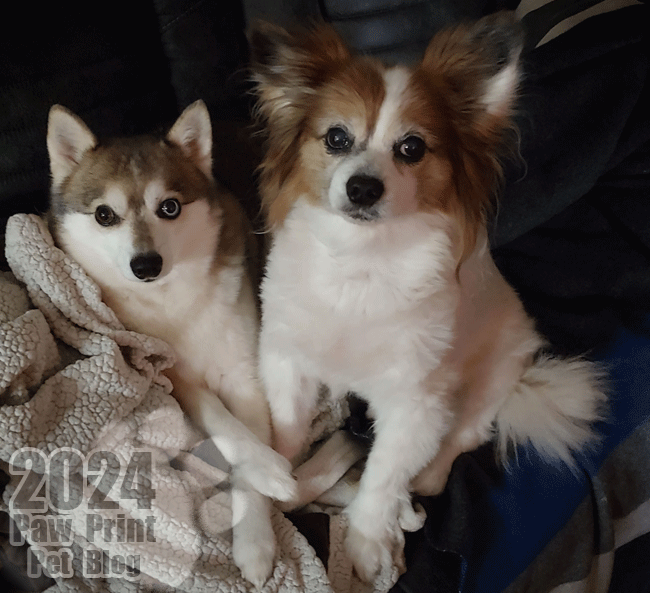
I knew that staggering my dogs’ ages by so many years would most likely mean that I’d eventually have to deal with losing one well before the other. Having Fenrir here to cheer me up has been such as blessing as I navigate losing Kitsune. But I, sadly, have to admit that the past month and a half or so has also been hard on little Fen.
Post Contents:
- 1 How My Dog Reacted To Losing His Best Buddy
- 2 Some Signs That Your Dog Is Grieving
- 3 Tips For Helping Your Dog Deal with Grief
- 4 Don’t Change Other Aspects Of Your Dog’s Life Too Quicky.
- 5 But Make Changes As Needed.
- 6 Try Not To Act Overly Emotional Around Your Dog.
- 7 Manage Your Own Grief.
- 8 Make Sure You Are Attending To Your Dog’s Needs.
- 9 Spend Time With Your Dog.
- 10 Engage Your Dog’s Body.
- 11 Engage Your Dog’s Mind.
- 12 Enlist Your Vet If Needed.
- 13 Give Your Dog Time.
- 14 Should You Get Another Dog?
- 15 My Plan With Fenrir
How My Dog Reacted To Losing His Best Buddy
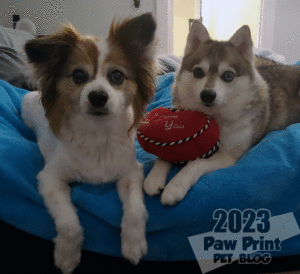 The first couple of days without Kitsune were especially hard. Fen whined a lot, and spent time running around the house trying to find Kit. Our biggest problem, by far, in dealing with Fenrir after the loss of Kitsune has been getting Fen to eat consistently.
The first couple of days without Kitsune were especially hard. Fen whined a lot, and spent time running around the house trying to find Kit. Our biggest problem, by far, in dealing with Fenrir after the loss of Kitsune has been getting Fen to eat consistently.
Fen has always been a very picky eater. It’s a relatively common Alaskan Klee Kai trait. As picky as Fen’s always been, he got about 3,000 times worse after we lost Kit. I think the problem has been twofold. Fen has always been a sensitive dog. He gets upset easily, and when he’s upset he doesn’t eat. In addition to that, I’ve come to realize that I relied a lot on Kitsune to help me encourage Fen to eat regularly. Kit loved food. Fen grew up knowing that if he didn’t eat his food when it was offered Kitsune would happily eat it for him! Plus, Kit’s love of food was contagious. Fen, not wanting to be left out of the excitement of meal time, would often eat something if he saw Kitsune eating it first.
Since having Fen as an only dog, meal times have been a huge struggle. Not only can I often times not get him to eat dog food, but he won’t take table scraps or treats either. Before anyone asks, yes Fenrir has seen a vet and gotten a clean bill of health. His lack of appetite is, thankfully, not being caused by a physical health issue.
Some Signs That Your Dog Is Grieving
- Loss of appetite
- Increased episodes/symptoms of separation anxiety
- Increased clinginess to human or animal family members
- New behavioral issues such as accidents in the house, increased vocalizations, destructive behavior, etc.
- Lethargy and depression
- Personality changes
- Sleeping more than normal or
- Not being able to sleep
- Pacing, or continuous searching for their missing friend
If your dog displays these signs, or others, after the loss of a friend there’s a good chance that the symptoms are being caused be grief. However, please always take your dog to the vet for a full exam if he/she displays new or worsening mental and/or physical symptoms.
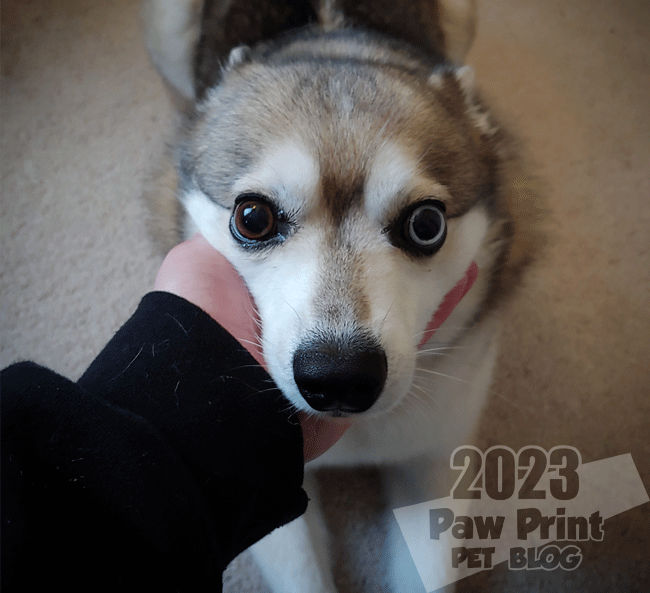
Tips For Helping Your Dog Deal with Grief
Don’t Change Other Aspects Of Your Dog’s Life Too Quicky.
Changing aspects of your dog’s life, such as their schedule or environment, too quickly after the loss of a friend can be stressful. Everyone grieves differently. I know some people are eager to put away their deceased dog’s belongings. But it may be beneficial to leave items, such as bedding and toys, in place as these types of items can bring comfort to your remaining dog. Try to keep your remaining dog(s) schedule as consistent as possible. If you are ultimately going to make changes to his/her schedule try to do so slowly.
But Make Changes As Needed.
That being said, if changing some aspect of your dog’s life will help them better cope then don’t be afraid to make changes. With Fenrir, for example, I’ve decided to change his diet. Feeding him the same food that I fed him and Kitsune just wasn’t working. In our case, changing Fen’s food has been a better decision than continuing to attempt to offer him a food that he just wasn’t interested in eating anymore.
Try Not To Act Overly Emotional Around Your Dog.
This one is hard. Our pets can be an amazing source of comfort when we’re dealing with sadness. But dogs pick up on our emotions, and when they are already feeling the stress of losing a housemate, seeing their favorite people morn can add to their distress. On days when I’m feeling particularly sad, I try to step away from Fen for a while. I take the time I need to express my sadness away from my dog. I’d never want to cause him excess stress because I’m having a bad day.
Manage Your Own Grief.
Because our dogs are so amazing at picking up on our emotions, finding ways to help yourself cope with your shared grief can go a long way towards helping your dog. Help yourself so that you can better help those around you, your remaining dog included. Remember that you can’t pour from an empty cup.
Make Sure You Are Attending To Your Dog’s Needs.
This tip may sound stupid but it can be easy to forget to complete basic tasks when you’re dealing with a really stressful situation. I know when I was dealing with Kitsune being sick, and the direct aftermath, it was hard to complete everyday tasks such as walking Fen. Even on your worst days, make sure you are attending to your remaining dog’s basic needs. Forgetting to feed or walk Fido is going to increase his stress levels.
Spend Time With Your Dog.
Go for a walk, play in the yard, or just snuggle up in front of the TV. After your dog loses a friend, he may feel lonely. Spending time with your dog can help him feel more secure.
Engage Your Dog’s Body.
Exercise can be healing, especially for dogs. If the weather is bad and you can’t walk your dog, or otherwise exercise them outside, take a look at our previous post about exercising your dog indoors.
Engage Your Dog’s Mind.
Physical exercise is awesome, but don’t forget that mental stimulation is important too! Keeping your dog’s mind busy can help them focus on positive things other than their grief. Consider engaging your dog’s mind by brushing up on their training, having them play with interactive toys such as puzzles, or letting them explore new areas.
Enlist Your Vet If Needed.
If your dog is showing extreme symptoms of grief, or doesn’t seem to be making improvements over time, don’t be afraid to enlist the help of your veterinarian. Your pet may require more intense behavioral intervention or, in some cases, medication to help them get through an especially difficult time.
Give Your Dog Time.
But for the most part, like with people, your dog is going to require time to deal with their grief. Be patient with your pooch as he/she adjusts to a new normal. Change is hard, especially when chance means moving forward without a beloved pack member. Try to be understanding of what your dog is going through. They are not trying to give you a hard time when they act out, they are having a hard time. Dogs are social animals that form strong bonds with family members. Losing a pack member isn’t easy. Be patient and give them the time they need to adjust.
Should You Get Another Dog?
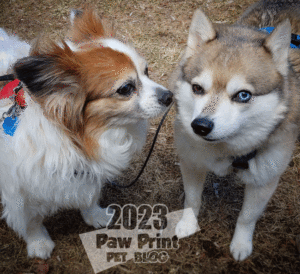 This is a question that seems to come up a lot when a dog passes from a multi-dog household. The answer, frustratingly enough, is that it depends. It depends on you, your remaining dog, your unique situation. There’s a lot to take into account before thinking about bringing a new dog home.
This is a question that seems to come up a lot when a dog passes from a multi-dog household. The answer, frustratingly enough, is that it depends. It depends on you, your remaining dog, your unique situation. There’s a lot to take into account before thinking about bringing a new dog home.
Remember that a new dog will never replace the dog that was lost. Adding a new dog to the mix won’t necessarily ease the grief that your current dog is experiencing. A new friend may bring a lot of joy, but (puppies especially) can also bring a lot of frustration. If your current dog is feeling down, he may not be in the right frame of mind to deal with an exuberant new pack member. You know your dog(s) best. Sometimes adding a new member to the pack cheers everyone up and helps hearts to heal. Other times it’s too much too soon. It can be a good idea to allow your current dog, and yourself, time to fully process grief before thinking about any new additions.
My Plan With Fenrir
I’ve been utilizing these tips for Fen and I think he’s doing ok. Lately he’s been showing more excitement about going for walks and play, and he has stopped wandering the house searching for Kit. Our biggest remaining issue is that Fen still hasn’t been eating consistently and I can tell, at times, that he’s still feeling down. I’m going to continue spending a lot of time with Fen, and I’ve decided to try a new food with him. I’m hoping if I find something he likes the taste of a bit more it will help encourage him to eat. The food he was on worked well when we had another dog around to help encourage Fen to eat. Now that Fen is an only dog, it’s just not cutting it anymore.
I’ll keep you all up to date on Fenrir’s progress. For more current updates consider following us on Facebook and/or Instagram.
Comment below! Did I miss anything? If you’ve, sadly, had to help your dog going through a loss what are some things you did that helped him/her feel better?
Posting regularly here has been hard for me since we lost Kit. I know topics like these are important, but writing about loss, and just dogs in general, when we’re still dealing with a lot of grief isn’t easy. I want to get back to posting here more often, but decided that going back to my every week schedule is too much for now. Going forward, at least for now, I decided that I’m going to try to stick to a every other Thursday posting schedule.
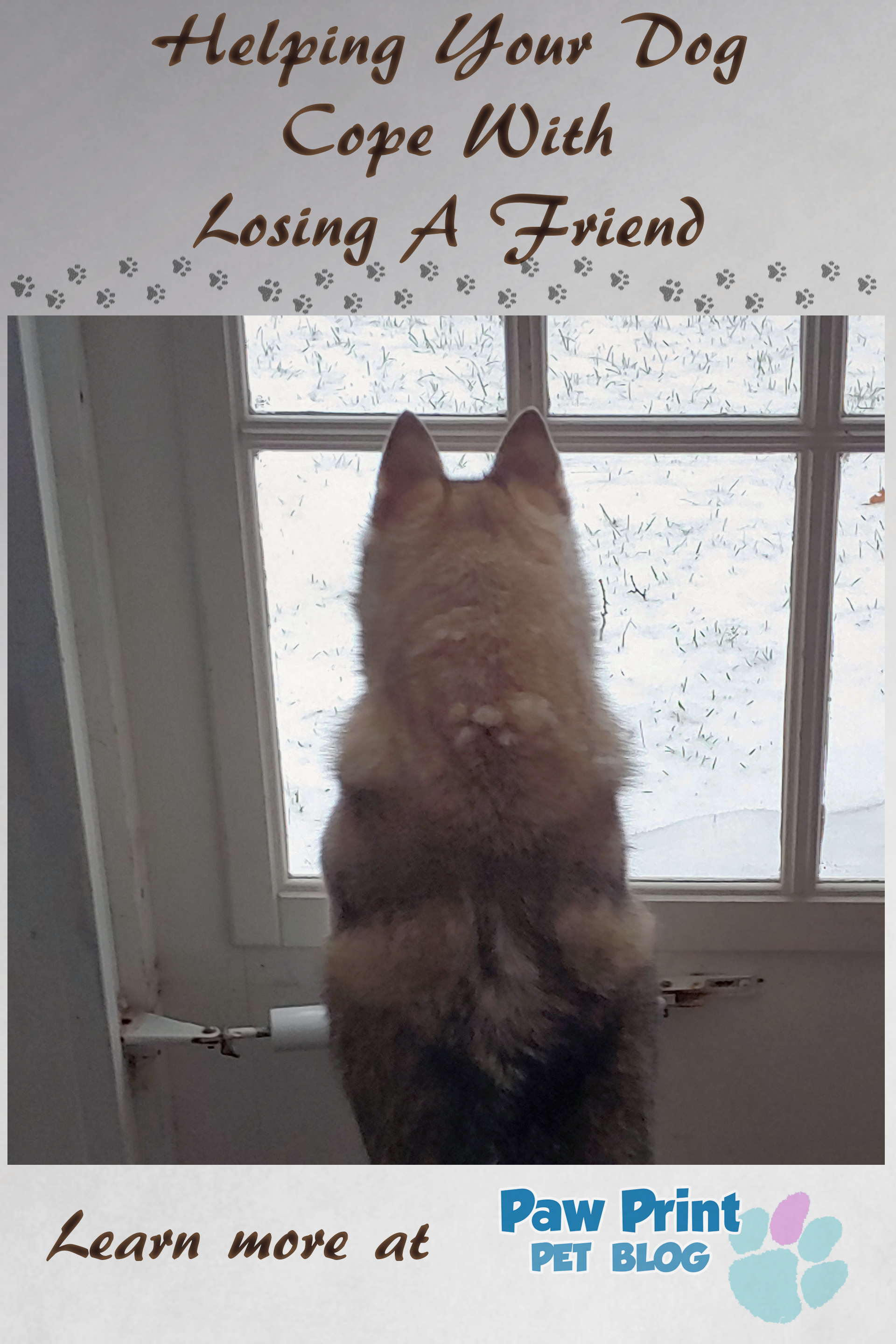
We’ve, unfortunately, been dealing with content scrapers stealing our articles. You shouldn’t be seeing this article on any site other than pawprintpetblog.com! If you’re reading this article on any other site, we’d love for you to take the time to contact us and let us know and, if you have the time, stop by and visit us on our official site! Thanks you.

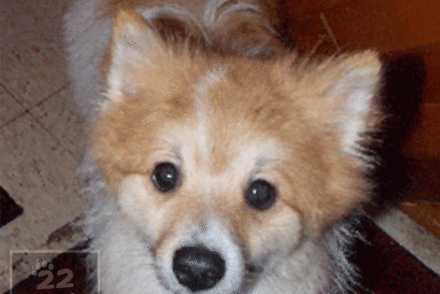
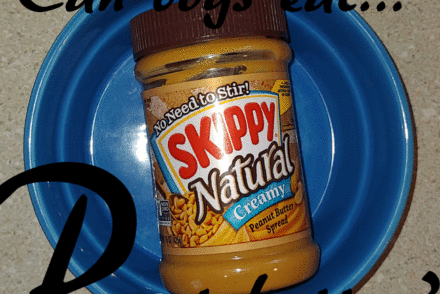
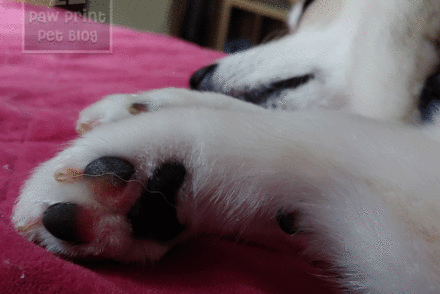

No Comments